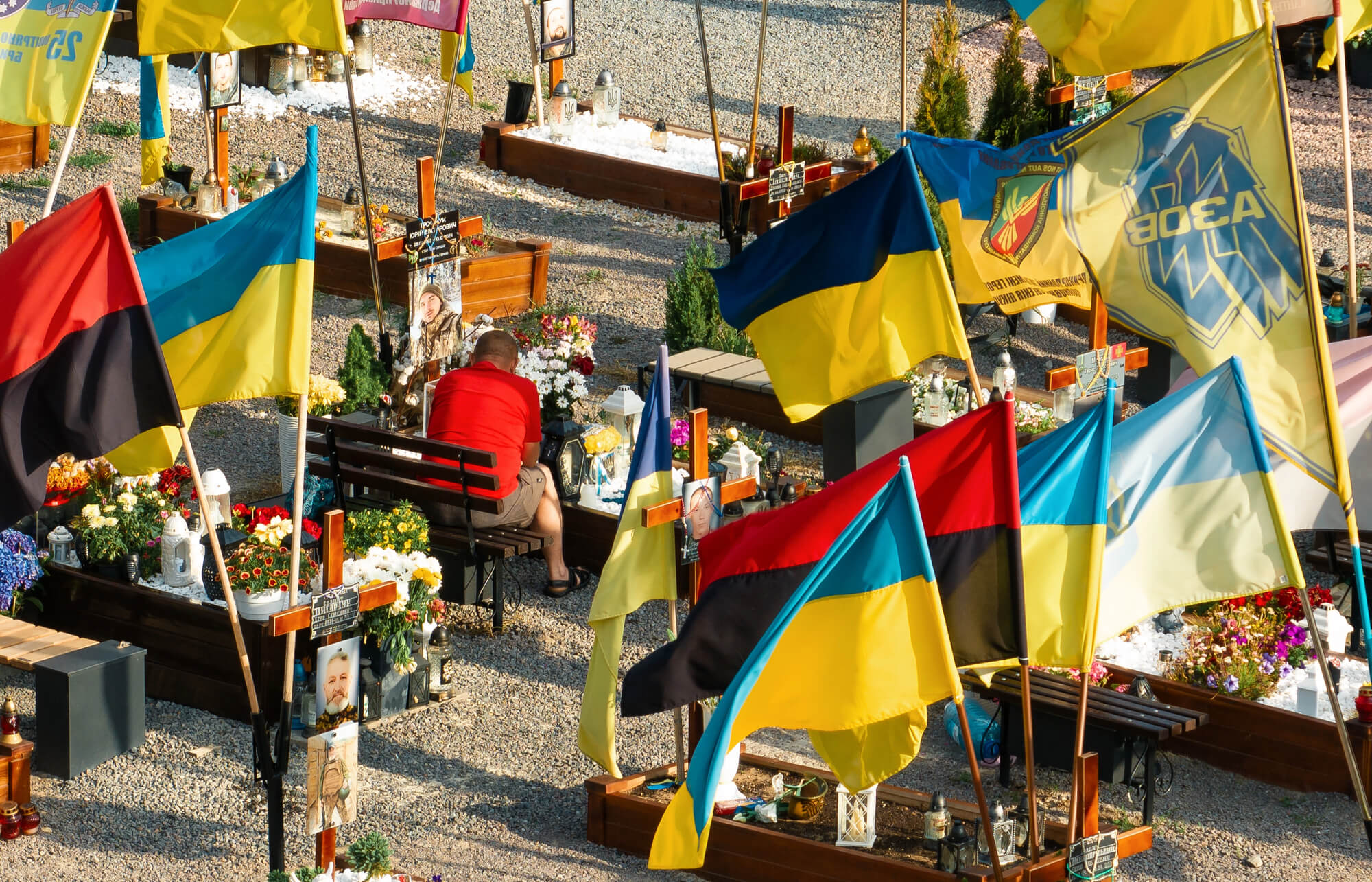It is too early to tell how and when Russia’s invasion of Ukraine will end, but it is not too early to ask questions about the future of Russia after Putin’s fateful and criminal decision to send the Russian Army to try to invade Ukraine and destroy its sovereignty.
The whole world has been able to witness not only the criminal invasion of sovereign Ukraine, the indiscriminate shelling of civilian dwellings, hospitals, schools, and other atrocities, but the world has also witnessed Putin’s failure so far to achieve his military goals as well as the admirable Ukrainian resistance. Ukrainian people understand that they cannot afford to lose. They fight for their freedom and their existence. In light of the evolving military situation, the unthinkable (a Ukrainian victory) seems more and more thinkable. It is even less unrealistic to think what might happen within Russia after a failure to defeat Ukraine.
Inside Russia, the invasion has brought about international isolation, massive sanctions, economic collapse, increased repression and possibly more deaths of soldiers after one month in Ukraine than during the whole Russian invasion of Afghanistan. All that for goals that are more than vague for ordinary Russians (e.g., denazify who in Ukraine?). The whole world is witnessing the collapse of Russia’s imperialist ambitions. How might this unravel inside Russia?
I do not want to speculate on how and under what conditions Putin will inevitably be replaced. When the Soviet empire imploded in 1991, the Soviet Republics quickly declared independence. In the last years of the Soviet Union, Boris Yeltsin had agreed to support (or not to oppose) these independence moves so that, with the Soviet Union out of the way, he would have free rein at the head of the Russian Federation. Yeltsin, however, quickly made clear that he would strongly oppose any secessionist movements inside Russia. When Chechnya declared independence from Russia at the end of 1991 under president Dudayev, Yeltsin sent Russian troops to quell the independence of Chechnya. He failed to submit Chechnya, but a second war was started by Putin in a much more brutal way in 1999. Chechnya’s capital, Grozny, was bombed to the ground and Putin put in place a puppet regime under the cruel leadership of Ramzan Kadyrov. In my view, a Russian defeat in Ukraine will surely lead to secessionist tendencies inside Russia, and possibly a breakup of the empire. Why?
The Russian tsarist Empire has been constantly striving to expand since its birth in the mid sixteenth century. It expanded to the North West gaining access to the Baltic sea and to the Southwest, annexing Ukraine, gaining territory from the ailing Ottoman Empire (Crimea, parts of the Caucasus). It expanded eastward, seizing territory from China in the Northeast (Vladivostok) and competing with Japan over territories in Manchuria and the Far East. Russia has today the world’s largest territory with a population of only 140 million inhabitants. Even though Russia’s territory and population are significantly smaller than the Soviet Union, today’s Russia is still an empire. Its territory comprises many non-Russian ethnic groups and nations (more than 120), not only in the Caucasus (Dagestan, Chechnya, Ingushetia, etc.) but also in the Northern Far East (Yakutia) and close to Mongolia (Altai, Buryatia, Tuva) without forgetting Karelia, Tatarstan, Komi, etc. Given Russia’s very centralized governance system, a defeat of Putin’s invasion of Ukraine is likely to significantly weaken the Russian state and its legitimacy, and tempt many leaders of republics of the Russian Federation to secede, like Chechnya tried to do in 1991. The fact that there are a significant number of ethnic Russians in most Republics (80% of Russian citizens are ethnic Russians) may not necessarily be an obstacle to such centrifugal tendencies. Kazakhstan for example became independent despite having a very large number of ethnic Russians.
Another factor that plays a role is the fact that among Russian soldiers sent to Ukraine, those from national minorities in colonized areas are unfairly overrepresented compared to ethnic Russians. During WWI, the French Army sent African soldiers from their colonies as cannon fodder to the front lines and the British did the same with Indian soldiers. This played a non-negligible role in the development of the anticolonial movement of later decades. Something similar may play out inside Russia after the war in Ukraine.
Overall, a breakup of the Russian empire would be more of a good thing than a bad thing. A democratic resurgence in Russia after the Putin regime may prove to be only transitory and lead to new imperialist tendencies, threatening again Ukraine and its neighbors. Having a stable democracy in such a large territory would be very challenging. My own research with Patrick Bolton and that of Alesina and Spolaore and others on democracy shows that democracies tend to fragment under the weight of secessionist tendencies unless certain conditions are fulfilled (strong decentralization and population mobility). A breakup of the Russian empire may lead to temporary chaos and disorder, but would in all likelihood create better conditions for peace, especially under democratic regimes on former Russian territories.
In any case, the time of empires and colonialism is over in a world where human capital and inclusive institutions are the fundamental driver of economic activity. Benefits from conquering land and colonizing other territories are much smaller in the modern world than even 200 years ago and its costs are much higher. The Russian empire and other empires, like the Chinese empire are doomed in the long run.
Attention
The authors do not work for, consult to, own shares in or receive funding from any company or organization that would benefit from this article, and have no relevant affiliations



